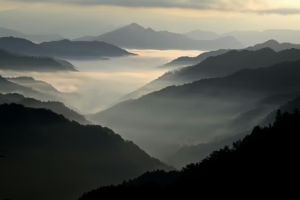From Cityscapes to Nature Escapes: Embracing Diversity in Global Travel Capitals
Introduction
In a world increasingly interconnected by technology and globalization, travel has become an essential part of many lives. It transcends beyond mere movement from one place to another; it embodies the exploration of diverse cultures, tastes, and landscapes. When we think about "global travel capitals," we often envision bustling cityscapes—metropolises filled with iconic landmarks, vibrant nightlife, and a rich tapestry of cultural experiences. However, equally vital are the natural escapes that offer a counter-narrative to urban life, allowing for solace, reflection, and the rejuvenation of the human spirit. As modern travelers, embracing the diversity of experiences these destinations offer becomes not just beneficial but essential.
The Allure of Cityscapes
Urban Wonders and Cultural Kaleidoscopes
From New York City to Tokyo, urban destinations are often ambrosial feasts for the senses. The allure of cityscapes lies in their ability to offer a smorgasbord of experiences. Walking down the avenues of New York City can feel like navigating through a dynamic play where each corner hides new stories waiting to be discovered. Places like Times Square, Central Park, and the Statue of Liberty serve as cultural touchstones, weaving an interlocking narrative of history, aspiration, and innovation.
Modern cities are melting pots, where the intermingling of cultures offers flavors and traditions from all corners of the globe. Take London, for instance, where you can sip traditional English tea in one café and enjoy dim sum in another. This gastronomic diversity is a reflection of the city’s rich multicultural population, making it a microcosm of global experiences.
Technological Innovations in Urban Travel
Technological advancements have forever altered the way we experience cities. Mobile applications make navigating urban landscapes more accessible, while social media platforms inspire travel and offer real-time recommendations from travelers who have ‘been there, done that.’ Notable landmarks now carry digital guides, enhancing our knowledge and enriching our visits with augmented reality experiences that revive history in real time.
Sustainable Urbanization
While cityscapes are rigorously structured, the paradigm of urbanization is shifting toward sustainability. Cities like Copenhagen and Singapore are leading the way in embracing green initiatives, integrating nature into their urban infrastructure. Rooftop gardens, green parks, and eco-friendly public transportation systems not only enhance urban living but also serve to remind city dwellers of the natural world. This blend of urban and natural environments creates healthier, more balanced living conditions, appealing to the modern traveler who values sustainability.
The Beauty of Nature Escapes
The Serenity of Natural Landscapes
Nature escapes offer a therapeutic counterpart to the high-octane vibrancy of city life. Fresh air, breathtaking vistas, and the simple sound of rustling leaves can rejuvenate even the most weary traveler. Destinations such as the Swiss Alps, the Maldives, and the national parks of the United States beckon those yearning for tranquility and communion with nature. Unlike the rapid pace of city living, retreats into natural settings allow for reflection, peace, and the opportunity to disconnect from the noise of modern life.
Wellness Tourism: The Rising Trend
As travelers become more conscious of their well-being, wellness tourism has emerged as a new sector within the travel industry. Here, retreats in natural settings focus on holistic health—mind, body, and spirit. Yoga retreats in Bali or spa escapes in Costa Rica not only rejuvenate the body but also elevate the soul. With the added awareness of mental health, nature escapes provide necessary tools for self-reflection and rejuvenation, reminding us of the importance of balance in our fast-paced lives.
Adventure and Exploration
For the thrill-seekers, natural destinations present countless opportunities for adventure. Hiking the Inca Trail in Peru or exploring the fjords of Norway offers rushes that city landscapes cannot match. These natural playgrounds push boundaries and inspire a sense of adventure that feeds the soul. Companies offering eco-tourism packages focus on allowing travelers to experience pristine environments while promoting conservation and sustainable practices, thus supporting both the traveler and the ecosystem.
Bridging the Urban and the Natural
While cityscapes and nature escapes may appear on opposite ends of the travel spectrum, they can be inextricably linked in meaningful ways. A growing trend in the travel industry is to develop itineraries that blend both experiences, offering travelers the best of both worlds.
Examples of Urban-Nature Hybrids
Cities like Vancouver and Barcelona represent this hybrid model exceptionally well. With stunning natural landscapes flanking their urban centers, these cities allow travelers to easily transition from a bustling nightlife to soothing natural escapes within minutes. A day spent exploring art galleries and dining at gourmet restaurants can quickly become an evening hiking in the nearby mountains or lounging on a beach.
Practical Considerations: The Importance of Accessibility
As we seek to bridge the gap between urban and natural experiences, accessibility stands as a critical factor. Public transportation systems that interlink city centers with nearby national parks or coastal areas not only enrich travel experiences but also enable more sustainable travel options. By reducing the reliance on personal vehicles, cities foster a culture of collective exploration, supporting both urban and natural tourism.
Navigating Cultural Diversity
Embracing Local Communities
Traveling is not just about visiting places; it’s about understanding the people who inhabit them. When navigating the cultural diversity of global capitals, interacting with local communities can lead to enriching experiences that neither a guidebook nor social media can replicate. Sustainable travel emphasizes this interaction, promoting home-stays, local tours, and community-led initiatives.
Festivals and Events
From the Carnival in Brazil to Holi in India, cultural events provide poignant insight into local traditions, beliefs, and social norms. These festivals create immersive experiences for travelers, allowing for deep engagement with local cultures, histories, and communities.
Culinary Exploration
One cannot speak of cultural diversity without mentioning food. Culinary tourism has seen a significant rise in recent years, with travelers eager to indulge in local flavors. From street food stands in Bangkok to fine dining in Paris, culinary experiences offer gateways to cultural understanding. Cooking classes and food tours facilitate direct engagement, turning meals into educational experiences that celebrate local traditions and heritage.
Sustainability in Travel
A Shift Toward Responsible Tourism
The traveler’s responsibility toward people and places becoming paramount in today’s travel landscape cannot be overstated. Sustainable travel practices emphasize respect—toward the local culture, environment, and communities. Whether through eco-friendly hotel choices, reducing plastic consumption, or supporting local artisans, every choice impacts our global footprint.
Conservation Efforts
Numerous global travel capitals are now aligning themselves with conservation initiatives. For instance, Costa Rica is recognized for its commitment to environmental sustainability, encouraging both native conservation efforts and community involvement. Travelers are given opportunities to participate in reforestation projects or marine conservation, allowing them to make a positive impact while exploring natural beauty.
The Future of Travel
As we shape the future of travel, the balance between urban and natural experiences will play a crucial role. A thoughtful approach can lead to a new model of tourism that prioritizes sustainability, respect for cultures, and an understanding of our global interconnectedness.
Conclusion: The Journey Ahead
From bustling city streets to tranquil nature trails, global travel capitals offer a myriad of experiences that showcase the world’s diversity. Our journeys through these varied landscapes allow us to embrace the beauty of different cultures while indulging in the serenity nature provides.
As modern travelers, we must seek to understand that real travel is not limited to seeking adventure or relaxation but also extends to nurturing gratitude, respect, and responsibility toward our world. By weaving together our urban explorations with nature’s escapes, we foster a deeper understanding of what it means to be a global citizen.
Ultimately, the landscapes we explore and the cultures we engage with enrich our lives, broaden our perspectives, and ignite our collective empathy. As we carve paths into the future of travel, let’s remember to embrace this diversity, ensuring that our journeys leave a positive legacy for future generations.
References
- United Nations World Tourism Organization (UNWTO) – "Sustainable Development of Tourism"
- World Travel and Tourism Council (WTTC) – "Economic Impact Reports"
- The International Ecotourism Society (TIES) – "Principles of Ecotourism"
- Travel + Leisure – "Top Cityscapes Around the World: The Best City Travel Destinations"
- National Geographic – "The Mental Health Benefits of Nature"
- Harvard Business Review – "How Sustainable Travel Can Benefit Local Economies"
The combined insights from urban cultures and natural environments enrich our understanding of global travel, creating a harmonious blend that reflects both diversity and connectedness. The journey ahead beckons as we strive for a more inclusive, sustainable, and enriching travel experience.


























Add Comment